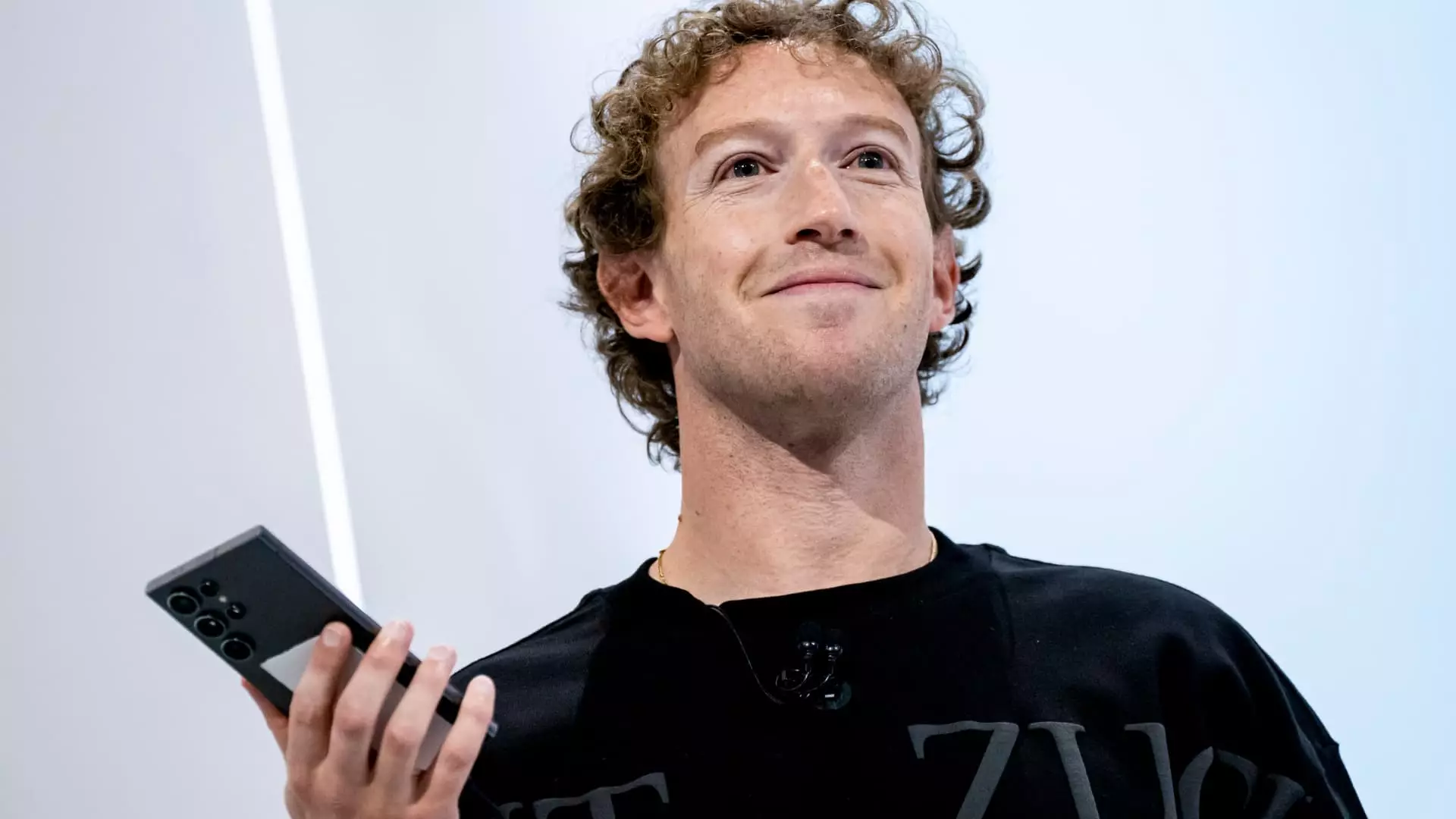In a revealing podcast interview with Joe Rogan, Meta’s CEO Mark Zuckerberg unleashed a volley of criticism against tech powerhouse Apple, shedding light on what he perceives to be a stagnation in innovation and an arbitrary set of rules that govern their ecosystem. This thought-provoking discussion not only highlighted the competitive tensions prevalent in the tech industry but also raised insightful questions about what drives innovation in today’s fast-evolving digital landscape.
The Paradox of Apple’s Success
At the heart of Zuckerberg’s critique is a paradox surrounding Apple’s iPhone’s undisputed success. While acknowledging that the iPhone has dramatically expanded global connectivity and accessibility, Zuckerberg contends that Apple has largely stagnated in meaningful advancements since Steve Jobs’ groundbreaking invention. He remarked, “It’s like Steve Jobs invented the iPhone, and now they’re just kind of sitting on it 20 years later.” This sentiment reflects a growing concern that Apple, instead of continually driving innovation, has become overly reliant on its past successes, failing to execute significant improvements in subsequent models.
Zuckerberg notes that consumer behavior is shifting, as evidenced by a decline in iPhone sales linked directly to minimal upgrades between models. This trend raises essential questions: Are consumers becoming more discerning about the value of incremental advancements? Is Apple struggling to justify its pricing in a marketplace that demands transformative changes? If users feel there is little to gain from upgrading, then Apple may inadvertently be reinforcing a stall in growth despite its market dominance.
Marketplace Tactics: Examining Apple’s Business Model
Another layer of Zuckerberg’s critique focuses on the financial strategies that sustain Apple’s profits. He pointedly referred to Apple’s so-called “30% tax” on developers, which encompasses fees imposed on app sales through the App Store. This practice, according to Zuckerberg, hampers innovation outside of Apple’s own products, as it creates an environment in which third-party developers struggle to thrive.
The implication here is twofold: on one hand, this model could potentially stifle creativity and innovation as developers are forced to navigate financial barriers; on the other hand, Apple’s policies inadvertently spotlight areas where Meta, and other tech entities, find opportunities to disrupt the marketplace. According to Zuckerberg, if Apple relaxed its stringent rules, there could be a resurgence of profit not just for Meta but for the industry at large.
Zuckerberg also delves into Apple’s justification for its controlling measures, framing them as necessary precautions aimed at protecting user privacy and security. However, he firmly contests this narrative, suggesting that improved protocols and robust security measures could allow for a more open ecosystem without compromising user safety. His assertion highlights a key pivot in the dialogue surrounding tech companies’ responsibilities and the need for flexible, adaptive policies in response to evolving consumer needs and technology landscapes.
Zuckerberg’s stance encapsulates a broader industry conversation: are companies, under the guise of protecting user interests, hindering the very development that could enhance user experiences? When established players like Apple resist changes, do they do so with genuine intentions, or are they merely protecting their market share?
In light of these critiques, Zuckerberg’s remarks about Apple’s Vision Pro headset further illuminate his perspective on innovation. While acknowledging the potential of the Vision Pro, he was quick to mention the lackluster reception it faced. This criticism is notable, considering Meta’s own push into virtual reality space with its Meta Quest headsets. Zuckerberg’s candid reflection invites ongoing scrutiny about what constitutes a successful product launch and how companies can meaningfully engage with their user base.
Zuckerberg’s discourse with Rogan ultimately serves as a microcosm of a larger narrative within the technology sector. As the boundaries of innovation are constantly tested and redefined, industry leaders must either rise to meet the challenges posed by competitors or risk apathy that could lead to prolonged stagnation. The dialogue between these tech titans is essential for consumers, who are at the epicenter of this ongoing struggle for innovation that balances financial health and user empowerment. In the digital age, where change is the only constant, the call for continuous innovation remains as vital as ever.

Leave a Reply